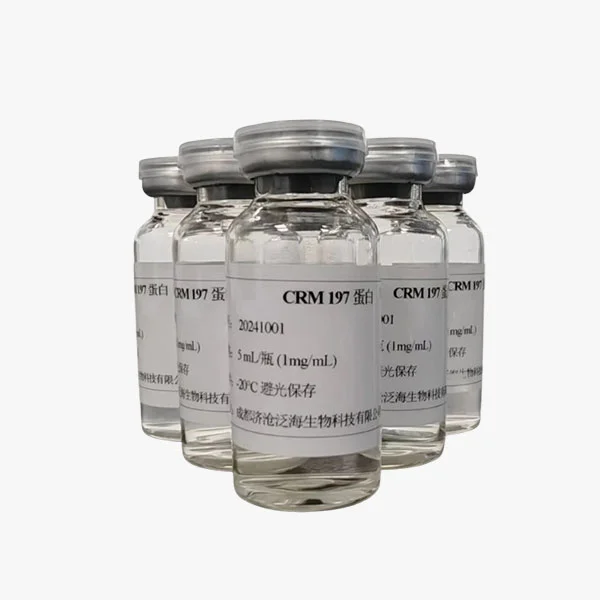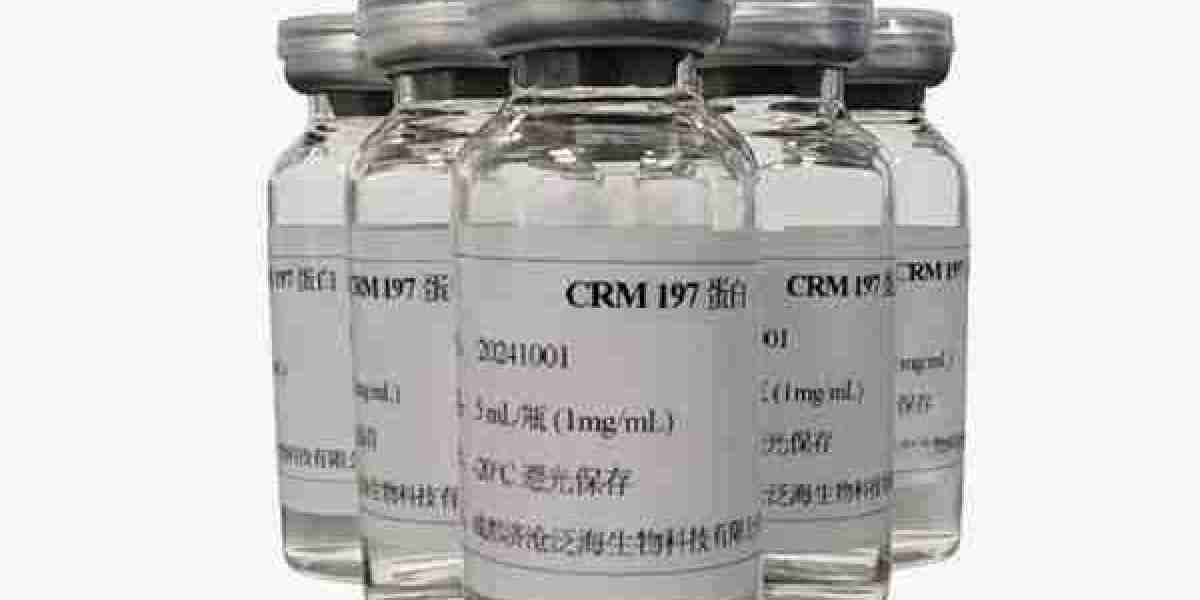In the rapidly evolving field of vaccine technology, researchers are constantly seeking safe and effective adjuvants to enhance immune responses and broaden protection against infectious diseases. Among the promising candidates, CRM-197 Adjuvant has gained significant attention due to its unique biochemical properties, structural stability, and versatility in vaccine design.

What is CRM-197 Adjuvant
CRM-197 is a non-toxic mutant of diphtheria toxin, specifically a single amino acid substitution at position 52, which eliminates its toxicity while retaining immunogenicity. Because of this, it serves as a safe and reliable carrier protein in the formulation of conjugate vaccines.
As an adjuvant, CRM-197 does more than simply carry antigens—it enhances the immune response by presenting antigens in a more recognizable and effective manner. This makes it a vital tool in the development of vaccines targeting bacteria, viruses, and other pathogens.
Key Biochemical Properties of CRM-197
The strength of CRM-197 as an adjuvant lies in its biochemical stability and binding capabilities:
Strong Binding Capacity
CRM-197 exhibits excellent binding ability to a wide variety of molecules and membranes. Unlike many proteins that lose function under harsh conditions, its binding activity remains stable across temperature and pH variations.
Stable Three-Dimensional Structure
During processing and formulation, CRM-197 maintains its three-dimensional conformation. This structural integrity ensures consistent performance and reliable conjugation results during vaccine manufacturing.
Exposed Lysine Residues
One of CRM-197’s unique advantages is its highly exposed lysine residues. These residues serve as key attachment points, allowing the molecule to form stable linkages with polysaccharides via junction molecules.
Conjugation Capabilities of CRM-197
A defining characteristic of CRM-197 is its ability to conjugate with a wide range of small molecules, including:
Polysaccharides
Oligosaccharides
Peptides
This versatility enables researchers to design conjugate vaccines that combine different antigens into a single formulation. By doing so, CRM-197 improves immunogenicity and creates long-lasting protection against diseases.
For example, in polysaccharide-based vaccines, CRM-197 functions as a carrier protein, converting weakly immunogenic antigens into strong T-cell dependent responses. This transformation is particularly valuable in combating pathogens with sugar-coated surfaces, such as Streptococcus pneumoniae or Haemophilus influenzae.
The Role of CRM-197 Adjuvant in Vaccine Development
1. Enhancing Immunogenicity
The primary role of CRM-197 Adjuvant is to enhance the body’s immune response to vaccine antigens. By binding to polysaccharides and peptides, it ensures these molecules are presented effectively to immune cells, resulting in a stronger and more durable antibody response.
2. Broad Application in Conjugate Vaccines
CRM-197 has been successfully used in the development of conjugate vaccines against infectious diseases including:
Pneumococcal infections
Meningococcal disease
Diphtheria and tetanus prevention
Haemophilus influenzae type b (Hib) infections
3. Safe and Non-Toxic Profile
Unlike traditional diphtheria toxin derivatives, CRM-197 is non-toxic, making it safer for use across diverse populations, including infants and immunocompromised individuals.
4. Stability During Manufacturing
Because CRM-197 maintains its structural integrity during processing, it ensures consistent vaccine quality even under varying manufacturing conditions. This reliability is critical for large-scale production of next-generation vaccines.
Advantages of CRM-197 Adjuvant
High Safety Margin: Non-toxic and suitable for use in pediatric and adult vaccines.
Versatility: Compatible with multiple antigens including polysaccharides and peptides.
Stable Conjugation: Maintains strong linkage integrity during vaccine formulation.
Broad Immunity: Induces T-cell dependent immune responses, which are more durable than polysaccharide-only vaccines.
Scalability: Well-suited for industrial-scale production due to its consistent structure and reliable conjugation properties.
Why CRM-197 is a Cornerstone of Future Vaccines
The unique biochemical properties and proven performance of CRM-197 Adjuvant make it an indispensable component in vaccine innovation. Its ability to bind consistently, maintain structure under variable conditions, and conjugate with diverse antigens ensures that it will remain a cornerstone in the development of next-generation vaccines.
As researchers continue to tackle global health threats, CRM-197 provides a stable and effective platform that supports innovation, safety, and scalability in immunization strategies.
Conclusion
The CRM-197 Adjuvant is more than just a carrier protein—it is a transformative tool in modern vaccine development. Its strong binding capabilities, structural stability, and ability to conjugate with polysaccharides, oligosaccharides, and peptides enable the creation of highly effective conjugate vaccines.
With its proven track record in enhancing immunogenicity and its role in safe, reliable, and scalable vaccine production, CRM-197 is set to play a pivotal role in next-generation vaccine development, contributing to better global health outcomes.
https://en.jicangbio.com/the-role-of-crm-197-adjuvant-in-next-generation-vaccine-development.html






